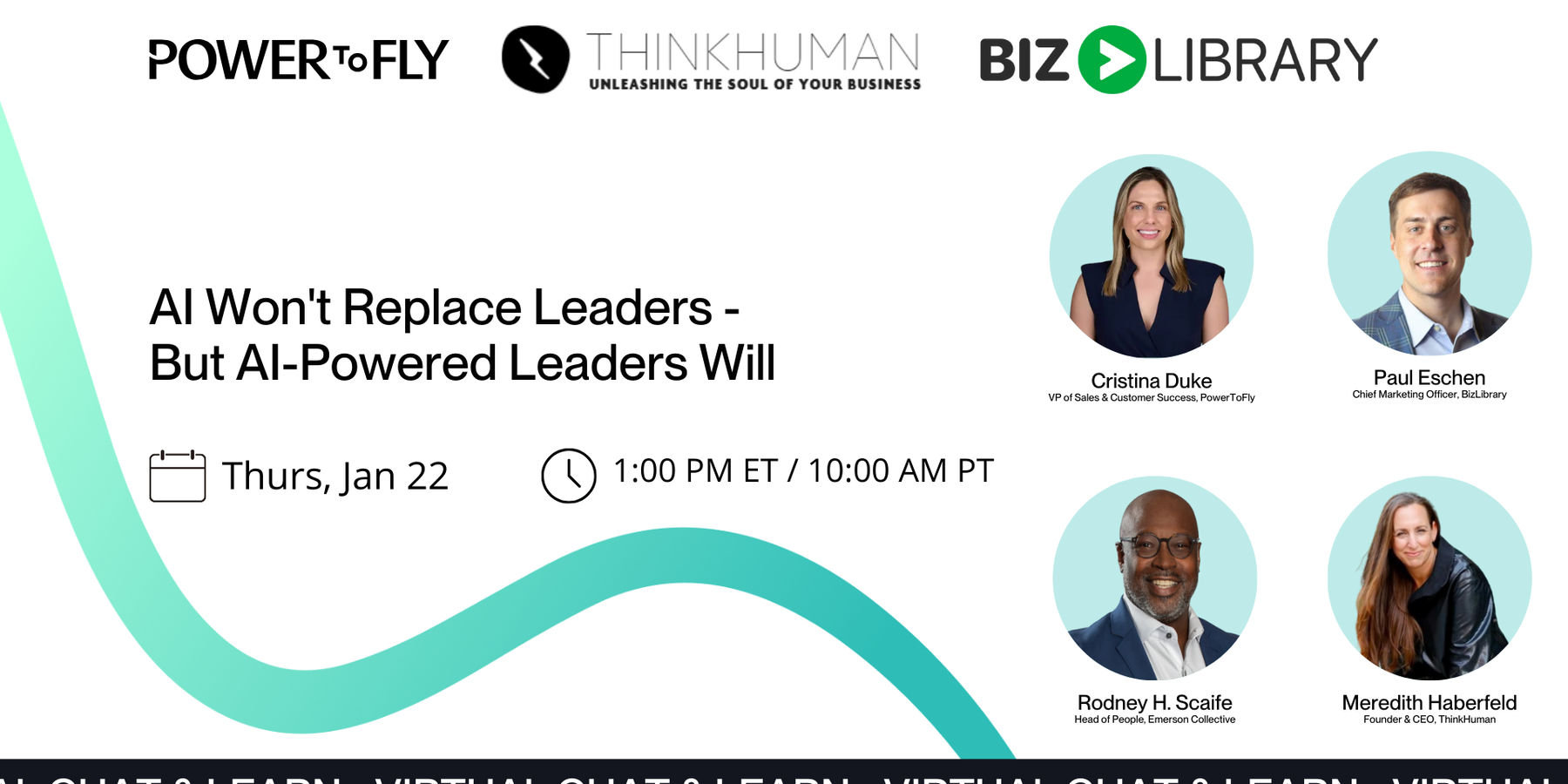A few months ago, a hiring manager at a mid-sized fintech company told us they had posted a job for a machine learning engineer and ended up with 300 resumes, but only five of them were even close to what they needed.
You might assume they were being overly picky, but the reality is that they weren’t looking for a unicorn. Just someone who could build, test, and fine-tune AI models—and work with the rest of the team without speaking in too much tech jargon. Still, after three rounds of interviews, they had nothing to show for their time.
This isn’t an unusual case. AI is moving fast. Everyone knows they need to keep up, but few know how to build the right team to do it. The job titles are new. The skills are evolving. And the people who can actually connect the dots between AI strategy and real-world business goals are still pretty rare.
If you’ve tried to hire for AI roles lately, we’re guessing you’ve probably hit the same wall. Whether you’re in finance, tech, or healthcare, finding people who understand both the tools and the context is, well, tough. And here’s the twist: the best AI professionals aren’t always sitting in Silicon Valley with PhDs. Sometimes they’re halfway across the world, working freelance, or embedded in marketing and sales teams, quietly making processes smarter.
In this post, we’ll walk you through how to find the best AI professionals for your business—without wasting time or budget. We’ll break down what “AI talent” actually means, where to look, and what to ask. And we’ll show you a better way to build the team that will take your AI plans from concept to reality.
Understanding what “AI talent” actually means today
Ask five people to define “AI talent” and you’ll get five different answers. One might say it’s someone who can build large language models from scratch. Another points to a data scientist knee-deep in training sets. A third thinks of a product manager who can roll out AI features without wrecking the user experience—or the budget. None of them are wrong.
AI talent isn’t just one job. It’s a wide set of skills applied across many roles. Some are highly technical, like AI engineers or machine learning researchers. Others are more strategic—consultants, product leads, or even marketers and sales analysts using AI to sharpen performance. These professionals may not even have “AI” in their job title, but they’re already solving problems with it. The best candidates don’t just understand the tools—they know how to use them in a business context.
Since the field is evolving fast, great candidates don’t always come with formal degrees or big-name experience. Some have built their skills on the job or through self-paced learning. If you’re only hiring based on pedigree, you’ll miss people who are already putting AI to work in smart, efficient ways. What matters most is how they think, how they build, and how they’ve made things better using AI.
What makes a great AI professional?
Once you know you need AI talent, the next question is: what should you actually look for?
- Problem-solving mindset
Look for candidates who can walk you through how they’ve tackled complex challenges—including not just what tools they used, but why they chose them. - Adaptability
AI evolves quickly. The best professionals are always learning and can pivot when new frameworks, tools, or use cases emerge. - Technical knowledge
A solid grasp of AI fundamentals—like machine learning models, data structures, and programming languages—is essential, even if the role isn’t purely engineering-focused. - Clear communication
Your AI hire needs to explain their work to non-technical teammates. Look for people who can translate technical ideas into plain English. - Practical impact
Ask how their work made something faster, smarter, or more useful. You want someone who ties their work to real business outcomes. - Real-world experience
Whether it’s on the job, through side projects, or open-source work, hands-on experience shows they can turn ideas into working solutions.
Where companies get stuck
Even companies with clear goals and healthy budgets hit walls when hiring for AI. Here’s where things usually go sideways:
- Chasing unicorns
Leaders often want one person who can do it all: build models, manage data, set strategy, and write production-ready code. That person doesn’t exist. Break the role into what’s actually needed now, and what can be added later. - Hiring too narrowly
If you only search for candidates with a computer science degree and a FAANG background, you’ll miss out on some great talent. AI expertise shows up in more places than you’d think—including startups, freelance work, and self-taught pathways. - Focusing on tools, not outcomes
It’s tempting to hire someone because they know the latest framework or just added “AI” to their LinkedIn title. Instead of relying on those accolades, be sure to ask how they’ve used those tools to solve real problems. - Overlooking non-technical teams
AI isn’t just for engineering. Your marketing, operations, and finance teams can benefit from AI-savvy professionals too—especially if they can bridge the gap between strategy and automation. - Going it alone
Building an AI-ready team takes time, and most internal teams aren’t set up to vet this kind of talent at scale. That’s where trusted partners can help fill the gap.
How to actually find the best talent in AI
Despite the newness of the industry, finding strong AI talent doesn’t have to feel like a shot in the dark. Here’s how to make the process faster, smarter, and more effective:
- Broaden your definition of “qualified”
Don’t get stuck chasing perfect resumes. AI is evolving too quickly for pedigree to be your only filter. Focus on skills and outcomes instead. What can the candidate do—and how have they applied AI to real-world problems? - Hire beyond the tech team
AI isn’t just a job for engineers. Your marketing, sales, and operations teams can benefit from professionals who understand how to use AI tools to streamline workflows and drive decisions. Look for cross-functional thinkers who can translate tech into impact. - Ask better interview questions
Skip the theoretical brain teasers. Instead, ask candidates to walk you through a specific AI project: What problem were they solving? What decisions did they make? What tradeoffs came up? Bonus points if they can speak to ethical considerations or business impact. - Tap vetted, global networks
You don’t have to build your hiring pipeline from scratch. Partnering with platforms like PowerToFly gives you access to AI professionals across regions, time zones, and experience levels—without the guesswork or delays. - Build from within when you can
If hiring isn’t in the budget or timeline, upskill your existing team. Training programs designed for working engineers can turn your current staff into AI contributors, faster than you think
The future of business belongs to those who hire smart
The future of business is moving fast — and AI is at the heart of that change. Finding the right AI professionals isn’t just a nice-to-have anymore; it’s essential to staying competitive and unlocking new opportunities. The good news? You don’t have to figure it out alone.
PowerToFly brings you vetted talent, proven tools, and tailored training to help your company build AI capabilities that actually work. Whether you need to hire full-time experts, augment your staff, or grow your team’s skills from within, we’re here to make it easier and faster.
Ready to get started? Schedule your call today and get matched with AI talent who fit your goals, vision, and budget.




